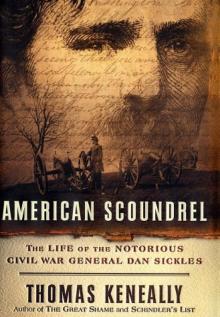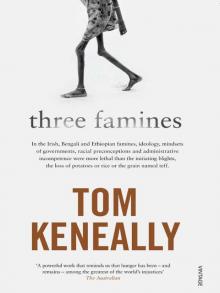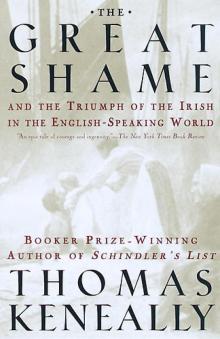- Home
- Keneally, Thomas
The Chant Of Jimmie Blacksmith
The Chant Of Jimmie Blacksmith Read online
Dedication
To the memory of Peter Cady
January, 1971
Contents
Cover
Dedication
Author’s Note
Chapter 1
Chapter 2
Chapter 3
Chapter 4
Chapter 5
Chapter 6
Chapter 7
Chapter 8
Chapter 9
Chapter 10
Chapter 11
Chapter 12
Chapter 13
Chapter 14
Chapter 15
The Life of Jimmy Governor
About A&R
About the Author
Other Books by Thomas Keneally
Copyright
Author’s Note
To an extent, and far more than the notorious Schindler book, The Chant of Jimmie Blacksmith has proved something of a chain round my neck. Might I say, that a chain which connects one to a large number of the Australian populace is a lucky chain to have imposed on a writer. Nonetheless, in my view, I have written many much more technically accomplished novels, which Australian opinion hasn’t valued as much as this old, old work of mine. So perhaps I should begin by apologising for the flaws of this book.
At the head of any comment on the young man who, in his recklessness and about the end of 1970, began the task, let me say that it was wild of me, and even potentially imperialist, to write from an Aboriginal point of view. If there were a life sentence attached to that crime, I would merely argue this – that I came from a people, including my grandmother in particular, which was animist, and believed in spirit-inhabited landscapes. This is why the Aboriginal cosmos has always fascinated me. While my grandmother’s animism related to Ireland, that of the Aboriginal peoples related to Australia, the southern hemisphere of the earth rather than the northern. I think I had got the animist habit of thought long before I started to write this book.
One of my motives in writing it was that as a child I had lived in the town Kempsey, New South Wales, which had two Aboriginal reservations, one of which still exists. I saw the children of this race, and their elders, pass our gate on their way to town. They were afflicted with eye disease, glue ear, tuberculosis and other blights.
At the time I started to write the book, Australians had passed, by a huge majority, a referendum that enabled the Federal Government to legislate for Aborigines. This signalled the liberation of Aborigines from being wards of the States (like children and imbeciles), and gave them a new level of control over their destinies, as well as endowing all of them with the vote. And yet in terms of health and acceptance, things seemed the same as they had been in 1901, when Jimmie Blacksmith (and his model Jimmy Governor) did everything to prove his reliability in European terms, and was still rejected. Half-caste or full blood, the destiny of the race still seemed bitter, as it is to this day.
Thomas Keneally, 2013
1
In June of 1900 Jimmie Blacksmith’s maternal uncle Tabidgi – Jackie Smolders to the white world – was disturbed to get news that Jimmie had married a white girl in the Methodist church at Wallah.
Therefore he set out with Jimmie’s initiation tooth to walk a hundred miles to Wallah. The tooth would be a remonstration and lay a tribal claim on Jimmie. For Tabidgi Jackie Smolders was full-blooded and of the Tullam section of the Mungindi tribe. To his mind people should continue to wed according to the tribal pattern.
Which was: that Tullam should marry Mungara, Mungara should wed Garri, Garri should wed Wibbera, Wibbera take Tullam’s women. But here was Jimmie, a Tullam, married in church to a white girl.
Jackie felt distressed, a spiritual unease over Jimmie Blacksmith’s wedding. These tribal arrangements should still be made, Tabidgi Jackie Smolders thought. The elders kept the tribal pattern in their heads and could arrange a tribal wedding even if the Tullam buck was on a mission station eighty miles, two hundred miles, from Mungara woman.
Jackie Smolders was therefore dispirited – so too even his flippant sister, a full-blooded lady called Dulcie Blacksmith. Half-breed Jimmie had resulted from a visit some white man had made to Brentwood blacks’ camp in 1878. The missionaries – who had never been told the higher things of Wibbera – had made it clear that if you had pale children it was because you’d been rolled by white men. They had not been told that it was Emu-Wren, the tribal totem, who quickened the womb.
Mrs Dulcie Blacksmith believed the missionaries more or less. They took such a low view of lying in other people that they were unlikely to lie themselves. And certainly, Mrs Blacksmith had been rolled by white men. For warmth in winter, she once said. For warmth in winter and for comfort in summer. But the deep truth was that Emu-Wren had quickened Jimmie Blacksmith (pale or not) in the womb and that Mungara owed him a woman.
Yet here he was marrying a white girl off a farm.
Therefore off went Jackie Smolders carrying Jimmie’s initiation tooth wrapped in clean flour-cloth and carried in the left pocket, away from the sevenpence that belonged to the right pocket and might be infected with malchance.
It must be said that although Jackie Smolders was alcoholic and knew that Jimmie Blacksmith was earning wages which Jackie, as maternal uncle, could claim for liquor, his chief reason for setting out towards Wallah was tribal and centred in the magical tooth.
The tooth had been knocked out of Jimmie’s mouth by Mungindi elders when the boy was thirteen, in 1891. So too he had been circumcised with stone, the incision poulticed over with chalk-clay and likewise the eyes. It is necessary to take cognizance of Jimmie Blacksmith’s experience from the day of this initiation to the time in 1900 that Jackie Smolders went to Wallah.
When Jimmie was taken from camp for his initiation, Dulcie Blacksmith presumed him dead for the time being. The epoch-old agenda of ceremonies was kept a secret from all the women. As far as Dulcie knew, the great Lizard had mashed and swallowed him and would now give birth to him as a completed Mungindi man.
He was gone for weeks. The mission station superintendent, Rev. H. J. Neville, B.A., kept asking where Jimmie was but was not incommoded with any part of the truth.
Grown Mungindi men – Jackie Smolders for example – knew that Jimmie was hiding in the scrub close to an anabranch of the Macquarie River. Here he waited for the wound to heal and lived on possum meat. He was full of the exhilaration of tribal manhood and the relief of finding that the lizard story was not true to the extent of his being actually chewed or swallowed. He sang:
Dash surprise from your eyes, my mother,
As crested parrots are dashed from the white branches of dawn.
On your brow put pride as proud as Dubra the berry tree.
Out of the chrysalis and out of the lizard’s mouth your son comes man.
Sometimes he swung the bull-roarer lest any woman from Brentwood mission come near. If seen by a woman during your isolation, you were hexed beyond knowing. Women in their turn were raised to fear the voice of the bull-roarer. If you twirled it now and again, you were more or less safe.
Jimmie Blacksmith’s initiation took place in autumn. There had been very little rain, and no frosts yet. The winds shifted, casual and warm, under a high Easter sun.
Back at Brentwood, the Rev. H. J. Neville could have used a good boy like Jimmie for the Easter hymns.
“Blasted blacks!” he told his wife. “The best of them are likely to vanish at any time.”
He felt that Jimmie was a protégé and had a sobriety none of his half-siblings possessed. The European who had impregnated giddy Dulcie Blacksmith must have been of a pensive nature; a man who perhaps hated the vice of sleeping with black women yet could not ma
ster it. Mr Neville himself had often felt the distinctive pull of some slant-grinned black face.
Townspeople spoke of this sin as if it were a distinctive form of immorality, substantially different from fornicating with a white woman. It was an accredited old wives’ tale that by lying with blacks a white man was gradually reduced to impotence with white women.
Good Mr Neville now reached for the butter at table and found the flies about it as thick almost as at high summer.
“If a person could be certain,” he said, a little peevishly, “that he had imbued one of them with decent ambitions!”
Until Jimmie Blacksmith vanished, Mr Neville had thought that he had a chance of bringing off the trick with eager, sober, polite Jimmie Blacksmith.
The Rev. Mr Neville had a true evangelical vocation. If he had been a student of anthropology he would have been less baffled before his fly-blown butter dish at Easter, 1891. Anthropology was a word he had never heard. It was, as well, a two-way traffic, demanding a specialized white awareness and talkative natives. Jimmie felt it would have been bad-mannered to upset Mr Neville by being talkative about initiation.
Since the boy’s disappearance, Mr Neville had taken to cutting even more notifications of vacant ministries out of the Methodist Church Times. All over the little weatherboard manse were mislaid small squares of newsprint proposing pastorages, anchorages, from the Riverina to the Darling Downs. They yellowed in the high autumn sun, in Jimmie Blacksmith’s lasting absence; while H. J. Neville continued faithful to his dull wife amidst such cheap, such wantonly appealing black flesh.
For some days Jimmie’s incised genitals stung beyond bearing. He would sing:
In the sting of our manhood,
Mungara’s daughters being few
As hills beyond Marooka, river snake – scant hills,
Mungara’s daughters scant,
Over Marooka we went singing,
Stalking Widgarra under dusty suns,
Came roaring at them from the moon
Painting blood on Widgarra men with strokes of warclubs,
Taking to us all the shrilling pee-wit women, daughters to Mungara,
Wives unto the men of Emu-Wren.
He sang it in monotone and with dissonances Mr Neville would have found strange. It was a fine song about an ancient raid. The woman-stealing it recounted had taken place during the English civil war, two and a half centuries previously.
Apart from the itch, he had all the comforts. A blanket. His mission clothes. Fresh-water crayfish and slightly muddy perch, left land-locked when the river took a new course, were plentiful. Possums came out at night. He flung his club at their phosphorescent eyes.
Ten days after Easter, Jimmie reappeared at Brentwood.
His half-sister, Bibra Dottie Blacksmith, was the first to notice his quiet entry. Then some other women and his half-brother Morton.
Dottie ran before him ululating in her high fifteen-year-old voice:
“Born from the Lizard comes my shining brother Tullam man.”
Morton woke Jimmie’s presumptive father, Wilf Blacksmith, who was well on the way to death, only a few years away, by pneumonia and alcohol. Dulcie dropped a shirt of Wilf’s that she had been washing in a basin in the sun. She shivered, for – with Jimmie’s manhood accomplished – the cold weather had already set in.
Dulcie could see her son coming through the loose thicket where the hovels of Brentwood stood. The sun emphasized his funny pale hair. Men hooted his passage in a comradely way. Small children ran across his path. Piercing the day, Bibra Dottie’s voice sang the news:
“Out of the monster’s mouth, sealed in manhood, comes my Tullam brother.”
How Dulcie laughed! She and Morton laughed wildly on solemn occasions and Mr Neville therefore thought them dense. It was not the truth.
“Where yer bin, yer paley bastard?” Dulcie screamed in the crisp, Cockneyfied version of English that natives spoke. Still holding Wilf’s irrelevant stained shirt she picked up the song from Dottie.
“Out of the Lizard’s belly come my sons, crushing frost, making large marks on the earth, sons returning in manhood who were sucklings from my belly, born to Emu-Wren by me.”
Mr Neville had watched from his veranda the return of young Jimmie Blacksmith.
“Excitable people,” he murmured. “Excitable people.”
It made him happy to see them. God must love those who greet mere absentees with so much ardour. It was as if the boy had come back from the dead.
Mr Neville wondered if, this once, he might get a sensible, explicit answer from a black. He walked down the path and out onto the dusty grass of the mission station.
“Jimmie Blacksmith!” he called. His voice cut the shrilling off. When Jimmie broke off his path and came towards the missioner, his brother Morton staggered about with the hilarity of it. But there was silence. Jimmie’s feet could be heard padding the earth in their light economic way.
“Where have you been, Master Blacksmith?”
“Catchin’ possums.”
Mr Neville flinched. “I can’t understand you. Didn’t it occur to you you might be needed for higher things? The Easter choir perhaps?”
“How d’yer mean, Mr Neville?”
“You’ve missed a lot of school.”
“Yair, Mr Neville.”
“Very well. You must come to my study, please.”
In the study, a front sitting-room dignified by desk, an orbis terrarum, three shelves of standard evangelical works, Jimmie was caned for truancy. No one resented it. No one had hindered Mungindi elders from gathering to make Jimmie a man. Though they had come from places spread over more than two thousand squares miles to initiate him, it would have seemed no unworthy usage that their new buck should now be lashed on the arse by a Methodist minister. For the truth of Mr Neville and the truth of Emu-Wren ran parallel. Mr Neville had his place, as did the poor-bugger-white-fella-son-of-God-got-nailed.
“Cane teach yer to be good feller now,” Wilf stated. “Don’ let that stand in yer light.”
2
Jimmie, who had come home from his initiation suffused with tribal manhood, began – during the next three years, by his own insight and under the Nevilles’ influence – to question its value.
What did Tullam and Mungara stand for now? Tribal men were beggars puking Hunter River rotgut sherry in the lee of hotel shit-houses. Tribal elders, who cared for initiation teeth and knew where the soul-stones of each man were hidden and how the stones could be distinguished, lent out their wives to white men for a suck from a brandy bottle.
Mr and Mrs Neville spoke to Jimmie of other matters than tribal.
“If you could ever find a nice girl off a farm to marry, your children would only be quarter-caste then, and your grandchildren one-eighth caste, scarcely black at all.”
Most men who weren’t old men had become a little sceptical of the tribal cosmogony, even if they were not as clear-headed about it as Jimmie. The very height of tribal manhood for some was this gulping of cheap wine in pub yards. That activity itself was a tortured questing after a new world picture for Mungindi man.
The country police did not take that view of the matter.
In the spring of 1894 the Rev. Mr Neville was awarded the Methodist church in Muswellbrook, and asked if Jimmie could come with him as some sort of servant or houseboy.
“Yer gotter better yerself, Jimmie,” said Dulcie.
A dray jolted the Nevilles and Jimmie away towards the railhead, Mr Neville waving a great deal, even if soberly. He felt some guilt at giving up Brentwood for some easy white church and seemed to be trying to impress his concern upon the Brentwood air, plastically, with his hand.
Dulcie sang:
Tall is my son going away.
The mountains will feel his heel,
And his hair catch in the stars.
She would scarcely ever see him again.
The train crossed mountains he had not seen before, and came down to Mus
wellbrook, a green town on river flats. There was a broad still river, and weatherboard and stone houses from the curve of the high street all the way down to the banks.
In a landscape of such promise, Jimmie thought again of Mrs Neville’s words: “If you could ever find a nice girl off a farm …”
He had very nearly decided that it would be better to have children who were scarcely black at all.
Mrs Neville taught him to cook, even chicken with seasoning. Mr Neville spoke to him of the size of the earth.
“And where are we on the globe, Jimmie?”
“We’re here, Mister Neville.”
His index finger would jab at a point on the orbis terrarum, understanding that that finger could not be pointed sharply enough to indicate the small places where Tullam and Mungara were prescriptive. Not that Jimmie assumed anything was right or wrong merely by size. Still, the large earth did indeed swamp them.
Jimmie’s black soul had been most undermined by the train journey, by seeing the umber plains which he had thought to be the total universe lead the Nevilles and himself to heights where red cedars stood so tall that the mind and the sky were stretched, through sub-tropic passes where the giant fern seeped a clear and (one felt) purified water, much more crystalline than the racy and unracing waters of the shallow Macquarie.
The strangler vines were flowering in their hold on the lean trunks of mountain ash.
“That there, Jimmie,” Mr Neville had said, “is a manna tree. It has a hard sweet gum that can be eaten. I believe the black people on this side of the mountains set great store by it.”
Earlier in the year, before the Nevilles and Jimmie came, the valley had flooded, enriching the top soil of the lower flats to a pitch of improbable green. The sweet pastures and vineyards resounded in Jimmie Blacksmith’s nervous system, conveying the fact of tidy white ownership, dislodging Tullam and Mungara.
Out on visitation, Jimmie used to drive Mr and Mrs Neville in their light new dray. Mr Neville’s conversation was often instructive.

 Jacko
Jacko Flying Hero Class
Flying Hero Class The Chant Of Jimmie Blacksmith
The Chant Of Jimmie Blacksmith Three Cheers For The Paraclete
Three Cheers For The Paraclete The Widow & Her Hero
The Widow & Her Hero American Scoundrel
American Scoundrel The People's Train
The People's Train A Family Madness
A Family Madness The Daughters of Mars: A Novel
The Daughters of Mars: A Novel Homebush Boy
Homebush Boy Bettany's Book
Bettany's Book Three Famines
Three Famines The Great Shame
The Great Shame